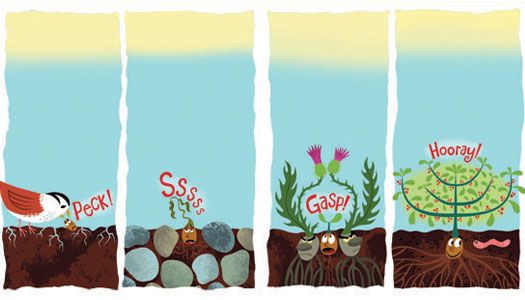Read Mark 5: 21-43
If you have been waiting for nearly 3 years to find out what happened to Jesus after he healed the “crazy” man in chains by banishing his many demons into a herd of pigs, I have 2 things to say: 1) I am really sorry and I promise not to let such a long period of time pass between posts to this blog any more. 2) Seriously?!? Do you even remember what happened? If for some reason you want a refresher you may read it here.
So having been uninvited from the land of the Gerasenes, Jesus and his cohort head back to the other side of the Sea of Galilee. Here, in contrast to the angry mob that they just left, is an expectant crowd gathered to greet them. We aren’t entirely sure of what has drawn the crowd. It could be that word is spreading about what Jesus is capable of in terms of healing, that they have heard about the destruction of the pigs, or they know what Jairus is about to ask of Jesus and they have come for the show.
Jairus is described to us as a leader in the synagogue. This means he is a prominent person in the community. Here in Texas, he might be compared to someone who was not only an elder / deacon / alderman in a local congregation but also like a local office holder. Some thing like being a councilman or a constable. The point is that Mark wants us to realize that he is significant. We do not know yet if seeking out Jesus is akin to political suicide (remember Nicodemus met Jesus at night) but the circumstances demand that he find Jesus soon. His twelve year-old daughter is dying.
So they set off. Jesus, the disciples, Jairus, and the crowd. There is jostling and bumping, elbowing and maneuvering. Probably the group formed into some sort of line working their way through the crowd each member occasionally looking back to the person who should be behind them and ahead to the person they should be following. You have been in crowds like that before haven’t you? Maybe to make it to the entry point of a popular ride at Disney World? I have been in lines like that to get to parking lot after a concert. No doubt Jairus was moving as fast as possible up ahead looking back frantically to make sure Jesus was still coming and Jesus was probably trying to make sure that the disciples were still in the group.
Mark tells us about only one other person in the crowd that day; a woman who has been actively bleeding for twelve years! Mark says that she has been to the doctor so many times and nothing has helped. She has spent all of her resources and, according to the Greek, having benefited nothing but into worse having come she has decided to do the only thing that is left for her. She has heard about the things Jesus has done and she is going to find him and she believes that if she can even just touch his robe she will be healed.
Let’s stop right there for a minute and consider a few things. Why would she be convinced of something being magical about Jesus’ robes? Obviously this is a pre-scientific mindset but there are plenty of people today that adopt some magical thinking even though our world is mostly steeped in scientific thought. Whatever logic she is using is not important, I really only ask to point out that every one around her that day would be convinced that they could be made ceremoniously unclean simply by touching her robes because she was bleeding. In a world where people can become unclean by touching someone’s clothes then certainly they might be healed by the clothes of a righteous person, right?
This would be the every day for this woman. In fact so long as she was bleeding she probably had to announce to people that she was unclean as to warn them. For more than a decade she has had to let people know that being near her is a threat. What sort of fellowship did she have? what sort of community? Did she always eat alone? Did she have to go to the well for water at odd times? She may have been a person of means and didn’t have those issues, but did her servants look at her with judgment instead of pity. She wasn’t allowed in the synagogue; couldn’t go to the temple during Passover. Was she married, did she have children? Were her family members treated differently because of their connection to her? There hasn’t been anything that can fix it for her and nothing can change the pain that she has already endured.
Have you ever felt that sort of isolating pain before?
As I write this the world is in the midst of the Corona Virus outbreak. Most of the United States is in some sort of imposed isolation. In our efforts to “flatten the curve” of infection, a good thing, we are dealing with tremendous economic hardship and isolation. For families this has been a time when they can grab some rare togetherness and connection and that has been a blessing. For the single people it has been the opposite because it is hard to make connection from 6 feet away with a stranger. I think many people, like myself, eventually go out for either a walk or to get something from the store. It is surreal to see so few people out and about but also because of the looks that you receive when you encounter someone. There is this moment where heads turn away or a glance signifies the unspoken question “are you safe?”. Most of us have used more soap and hand cleansers in the past month than we did in the previous year.
It gives us a little insight into this Biblical woman’s life. We do not know her name, but we do know her faith. If she can just touch the robe she knows that something good will happen– that she will be healed.
Somewhere in the crowd she sees Jesus trying to keep up with Jairus making his way through the throng. She herself presses and elbows and pushes and finally gets close enough that she can just touch his robe. It happens. Her flow stops. She has lived with it so long she knows. She knows!
Jesus knows too. Mark relates that he felt power go out from him. Someone in this crowd has experienced the healing touch of God. He immediately stops to figure out who. Salvation has been received Jesus would like to meet the recipient. I don’t believe that Jesus is angry, I believe that he wants to affirm an act of faith, I believe he wants the relationship that comes from the grace granted.
Jesus asks who it was that touched him. The disciples do not know. Jairus doesn’t know and is frustrated by the delay. No one knows except the woman. She ventures forth Mark says “fearing, trembling, having known” falls at Jesus feet and tells him everything.
Jesus replies with grace and love, commends her faith, and sends her out with a declaration of peace and the assurance that she is forever healed of that affliction. I submit to you that it is not just her belief that touching Jesus robe would heal her that did heal her, but it was also her response to what Jesus had done for her.
“fearing, trembling, having known”
Having known what? That she was healed, certainly. That she had been healed despite having reached a point in her life where she was convinced that she would never find release from this sickness that gripped her perpetually? Was she fearful and trembling because she had felt unworthy for so long that she believed the lie that she was fundamentally unclean and in that one moment experienced not only healing but that unbelieveable cleansing that comes from realizing that God does love you despite how unloveable you have felt or how unloveable you have allowed others to make you feel? Was she fearful and trembling because she now knew what Jesus could do and as a result who Jesus must be? Recall the function of Mark’s gospel is to share with us the beginning of the gospel of Jesus Christ, the Son of God.
Many years after this, the Apostle Paul would write to the Christians in Phillipi one of the most significant passages in all of the Bible. After reminding them of who Christ Jesus is he implores them to work out their salvation with fear and trembling. WOW.
I always wondered what Paul meant and I never realized the parallel language with this story. So what did the woman do? She sought out God. She found salvation and healing. She recognized what God had done and she responded with appropriate awe and respect. Her knowledge of God expanded by recognizing what he had done for her and she responded with the appropriate fear of the Lord and confession. She entered into a deeper relationship by telling God everything.
What has God done for you? How has He made you whole? When have you experienced His power and might? What prayers has He answered? What hope has He sustained in you?
Whatever the answer keep telling God everything; deepen the relationship. The One who has created everything that is is The One who has done this for you. A little fearing and trembling at the truth of who God is appropriate; a lot of sharing is more so.
The story of chapter 5 isn’t over though. No sooner does this encounter finish, then someone comes to Jairus and informs them that his daughter has died. There is no longer any need to trouble Jesus to help. Mark tells us that Jesus gives a call to deeper faith. Do not be afraid but believe.
At this point a lot happens. Jesus presses on with Jairus and only 3 of the disciples. When they arrive the professional mourners are already at work playing the appropriate sad music and weeping. When Jesus suggests that the girl is merely still asleep they laugh at him. Not just a mild laughter but based on the Greek mocking laughter, derision. Nothing to this point is helping Jairus with his trusting faith.
Jesus enters the room where the daughter is with just the 3 disciples and her mother and father. Taking her hand and with a word (literally little girl get up) she opens her eyes and gets up. Jesus tells her to feed their daughter and asks that no one say anything about what transpired.
This is the God that we worship, follow, serve, seek to know. Sometimes He works in the pubic throng. Some times he works in private and seeks no publicity. But He is bigger than anything in this world, even death.
So get to fearing and trembling and knowing all that has happened to you and tell God everything.












